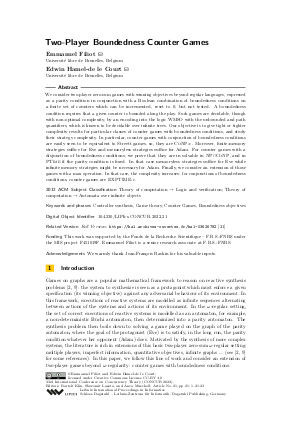LIPIcs.CONCUR.2022.21.pdf
- Filesize: 0.88 MB
- 23 pages

 Creative Commons Attribution 4.0 International license
Creative Commons Attribution 4.0 International license












Feedback for Dagstuhl Publishing